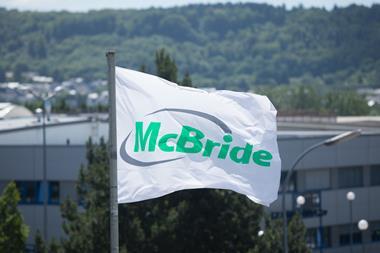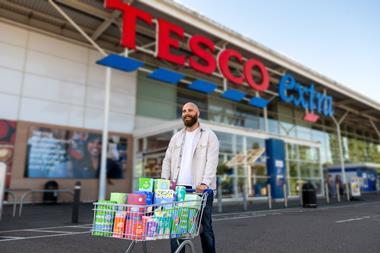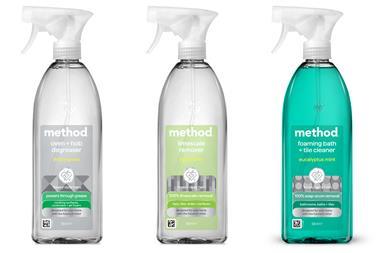It should be an obvious move. Consumers think clogging up the environment with chemicals is a bad idea and just about every fmcg market is looking for greener alternatives. Yet eco-friendly laundry detergents are a tiny niche. Eco brand leader Ecover has only recorded sales of £13m in the £964m UK laundry market [Nielsen June 2007], a tally dwarfed by Persil and Bold at £217m and £174m. And the fmcg giants just don't want to know. Although Reckitt Benckiser dipped its toe in the water, its Down to Earth range was axed four years ago because of poor sales, and when Ecover offered its formula to all-comers five years ago, the publicity stunt was given short shrift. But is the market about to take off? Online supermarket Ocado reported that sales of environmentally friendly household products have soared by nearly 60% in a year. In recent months, two new niche brands have been launched: Acdoco and Aquados. And more significant still was the revelation that Reckitt Benckiser is reportedly preparing to launch an eco-friendly washing powder, provisionally called VO, later this year. US brand Method is set to follow up the launch of its environmentally friendly cleaning products with laundry detergents in the future. And P&G is rumoured to be working on a range of "environmentally friendly" liquid detergents. What remains to be seen is just how "environmentally friendly" these products will be. Traditionally, performance has been a stumbling block. But pricing is also key, especially as detergent manufacturing costs are closely linked to oil prices. "The key things consumers are looking for in laundry are performance and price, over and above any environmental factors, and they are not willing to compromise," says Louise Brunt, category strategy manager for homecare at Unilever, which makes Persil. "Areas like organics and fairtrade only took off in the mass market once the price was right," she adds. Unilever and P&G have opted to tackle the green agenda by making their products more energy-efficient. Concentrated versions, such as the Small and Mighty double strength versions of Persil and Comfort launched this year, need less water and use up less energy in transport, while other variants are designed to wash effectively at temperatures as low as 30 degrees. P&G's NPD plans in this area are as shrouded in secrecy as Reckitt Benckiser's, but it is expected to make energy saving claims of 40-80%. What P&G's plans do not appear to tackle, for the reasons outlined above, are the pollutants - such as bleach and phosphates - that are washed into the world's oceans. But new niche players are promising, at the least, to tackle the issue of performance. Simply Laundry, a new product launched by Aquados this spring, was the first UK product to be awarded the EU eco-label licence - which tests on performance. "New products will have to meet stringent criteria to be truly environmentally friendly or to last," says Andrew Glen, UK sales and marketing director for Aquados. Will it wash? "Consumers tend to be sceptical about overtly 'green' products," says one multiple buyer. "They may try once - particularly if the products are heavily advertised or promoted - but if they don't give results as good as the leading brands, they won't last."n
Close menu
- Home
- Retail & Wholesale
-
Products & Suppliers
- Back to parent navigation item
- Products & Suppliers
-
Product Categories:
- Back to parent navigation item
- Product Categories:
- Alcoholic drinks
- Bakery
- Cereals & breakfast
- Cheese
- Chicken & poultry
- Chocolate
- Confectionery
- Crisps, nuts & snacks
- Dairy
- Fish
- Fresh produce
- Frozen
- Household
- Meat
- Own Label
- Sauces & condiments
- Seasonal
- Soft drinks
- Vaping
- Vegan & plant-based
- World foods
- Suppliers
- People
- Reports & Data
-
Topics A-Z
- Back to parent navigation item
- Topics A-Z
-
Popular topics:
- Back to parent navigation item
- Popular topics:
- Cost of living crisis
- Crime
- Deposit Return Schemes
- Finance
- Government & Regulation
- Health
- Inflation
- Loyalty
- Marketing
- Mergers & Acquisitions
- New Product Development
- Sourcing
- Supply chain
- Sustainability & environment
- Technology
- Ultra Processed Foods
- Vaping
- A-Z all topics
- Content by type:
- Events
- Ask iA (beta)
- Subscribe now
Sign in to comment on this article
Not logged in before? Register for FREE guest access today.
You will be able to:
- Read more stories
- Receive daily newsletters
- Comment on stories
Advert



















No comments yet